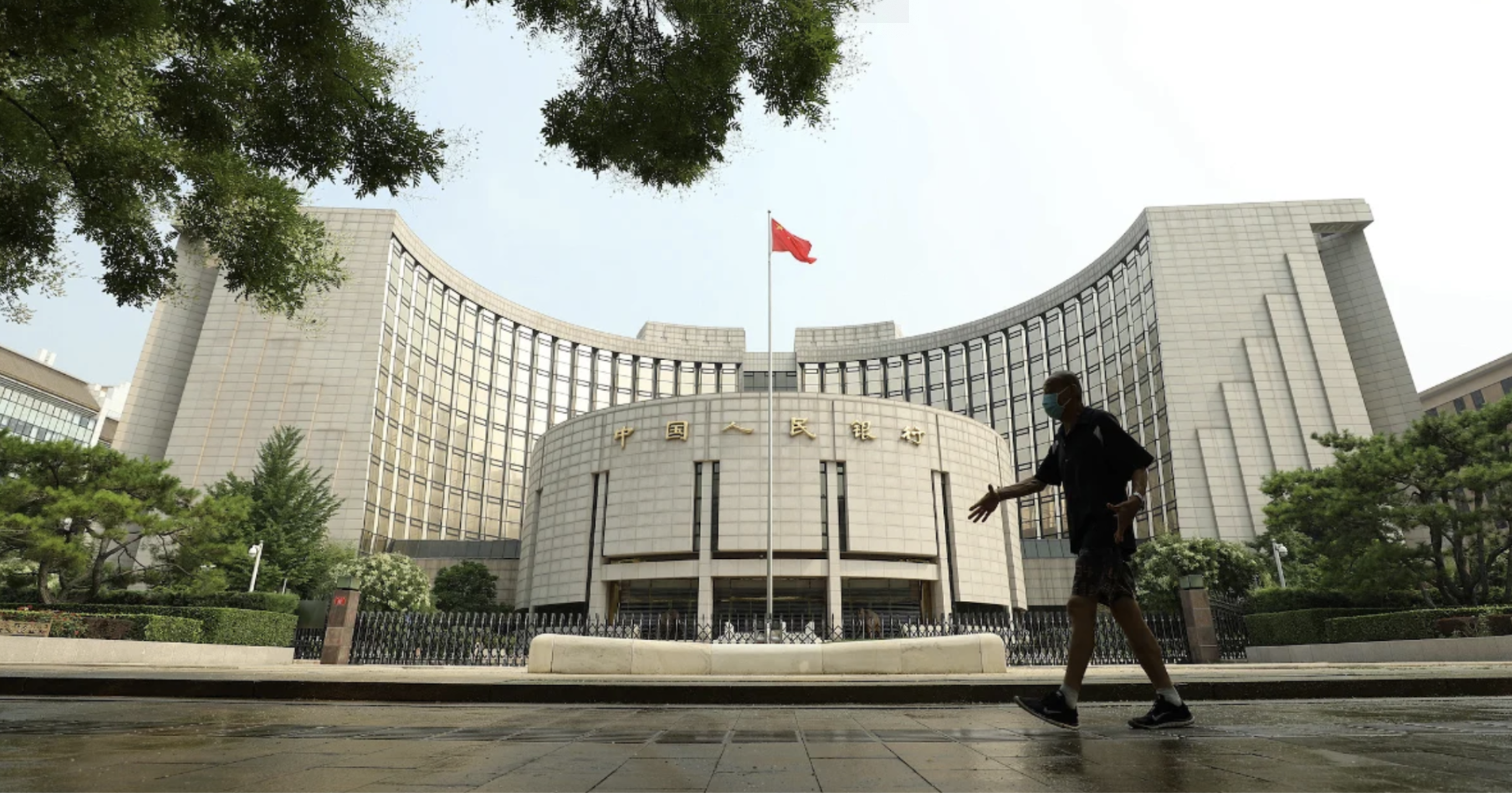Follow us on Telegram for the latest updates: https://t.me/mothershipsg
China’s central bank slashed its market-based key lending rates on Jun. 20, the first time in 10 months as the country sought to counter slow post-Covid growth, both Reuters and Chinese state media Xinhua reported.
The one-year loan prime rate (LPR) was lowered to 3.55 per cent from 3.65 per cent, while the over-five-year LPR was also lowered by 10 basis points to 4.20 per cent.
LPRs are the lending rates offered by banks to their best customers and are based off 18 banks. These rates also serve as the benchmark for home mortgages and corporate loans.
The last time the rates were eased by the People's Bank of China (PBOC) was in August 2022 after a two-month lockdown in Shanghai, according to Nikkei Asia.
Previous cuts
The PBOC earlier cut the interest rate of its 1-year medium-term lending facility rate (MLF) on Thursday (Jun. 15), which affects the liquidity of the banking industry, Xinhua reported.
Earlier on Jun. 13, the central bank lowered China’s key short-term policy rate from 2 to 1.9 per cent, as well as announced a lowering of its overnight rate by 10 basis points.
The director of a Shanghai financial institution said that the lending rates cut will help drive down “real loan interest rates, reduce financing costs, stimulate credit demand” as well as boost growing investment and consumption.
Additionally, the PBOC also put in net 180 billion yuan (S$33.67 billion) through an open market operation to ensure that banks have sufficient liquidity, Bloomberg reported.
Smaller-than-expected cuts
The modest rate cuts were underwhelming to investors who had hoped for more, but indicated that the Chinese economy was still struggling to recover, New York Times (NYT) reported.
Some economists had anticipated a larger cut of 15 basis points in the five-year LPR to boost the poorly-performing housing market, though the reductions were in-line with the earlier policy cuts, according to Bloomberg.
After the announcement, China’s currency Renminbi weakened against the U.S. dollar, while Chinese stocks in Hong Kong fell by almost 2 per cent.
A senior China strategist at ANZ Bank noted that the underwhelming rate cuts could mean that the Chinese government remained cautious of utilising the real estate sector as a short-term solution to stimulate growth, Reuters reported.
Meanwhile, the West hiked interest rates
The Chinese central bank’s move is a stark contrast from Western countries and the United States, according to NYT.
Both the Federal Reserve and European Central Bank have been hiking interest rates to deal with rising inflation.
The lending rates cut showed that policymakers were increasingly concerned about pace of China's economic recovery, said economic consultancy Capital Economics in a note cited by Nikkei Asia.
In January 2023, the International Monetary Fund (IMF) said that a third of the global economy is expected to enter a recession this year.
China, the world’s second largest economy, had set its target Gross Domestic Product (GDP) growth at 5 per cent for 2023, the lowest in decades, according to the Financial Times (FT).
Despite the reversal of its stringent zero-Covid policy in December 2022, the Chinese economy has yet to fully bounce back.
The country continues to be plagued by a weak property market and trade headwinds, while analysts from Goldman Sachs recently lowered their forecast for China's predicted growth from 6 per cent to 5.4 per cent, FT reported.
Its property market, which is a key driver of its economy, remains in a debt crisis and would likely remain weak, according to NYT.
Related:
Top image via Getty/China News Service - Jiang Qiming
If you like what you read, follow us on Facebook, Instagram, Twitter and Telegram to get the latest updates.

